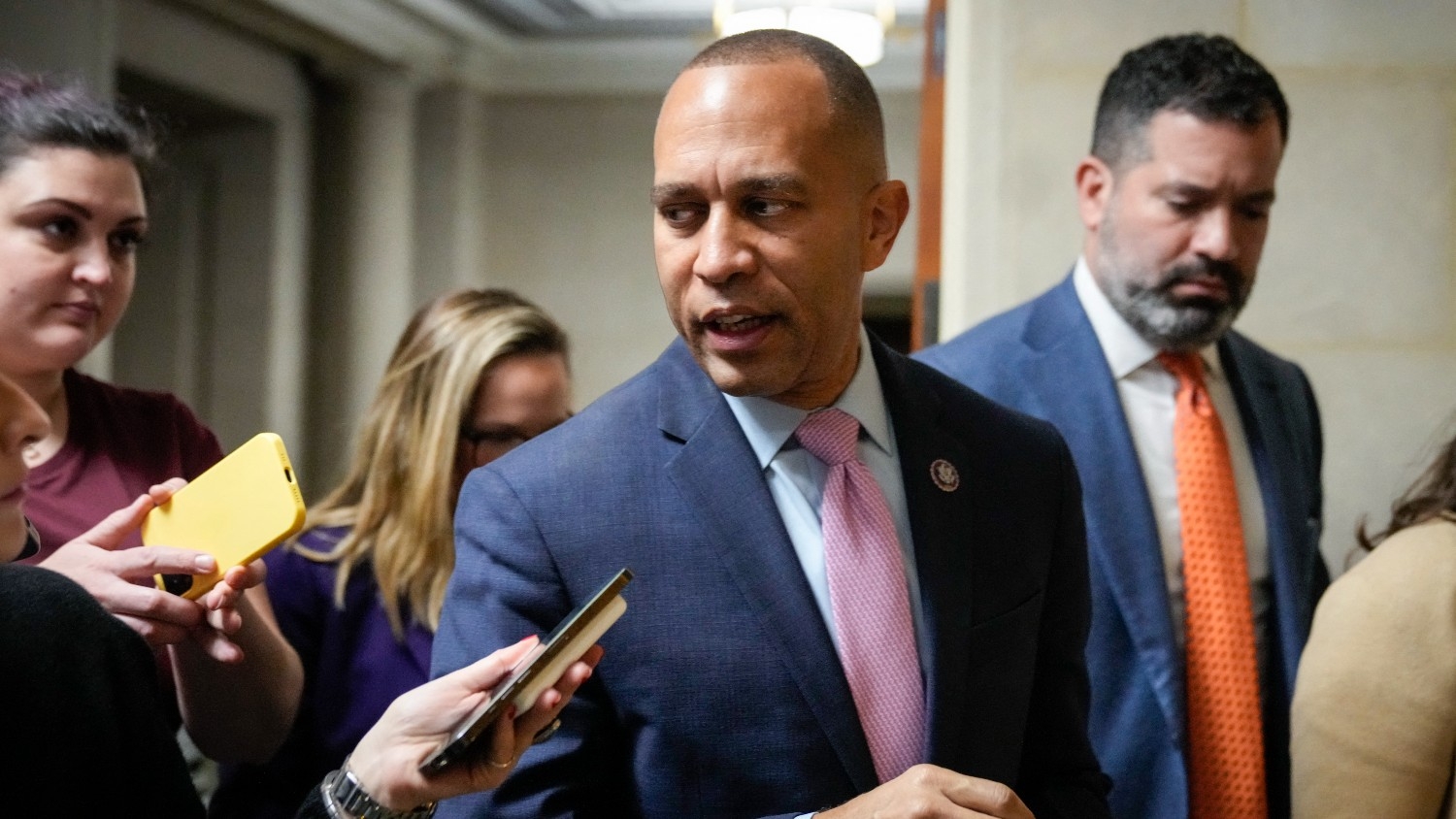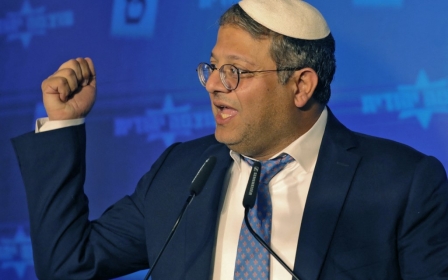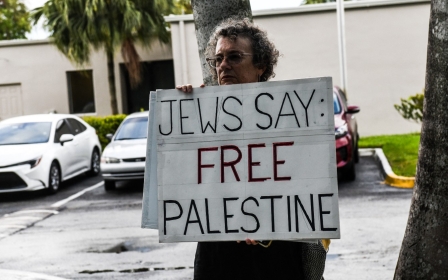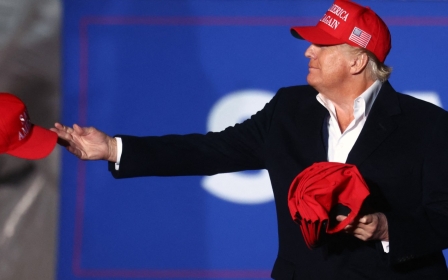New House Democrat leader's staunch ties to US-Israel groups

New York Congressman Hakeem Jeffries' selection for the role of House minority leader next year has made history as a sign of a changing party, but the lawmaker's ties to major pro-Israel groups has raised questions over whether that change will extend to the largely uncritical support the US shows for Israel.
Jeffries, who on Wednesday was chosen to replace former House Speaker Nancy Pelosi, 82, as the Democratic Party's leader in the House of Representatives, will be the first Black lawmaker to hold the position.
"This is a moment of transition," Jeffries told a small group of reporters on Tuesday night. "We stand on the shoulders of giants, but are also looking forward to being able to do what's necessary at this moment to advance the issues."
Jeffries' ascension to lead the Democrats in the House is a net positive for pro-Israel groups, who have dealt with growing opposition and criticism of Israel stemming from within the Democratic Party.
'Back home in New York City we consider Jerusalem to be the sixth borough'
- Hakeem Jeffries, US congressman
The congressman maintains close ties to the American Israel Public Affairs Committee (Aipac), the largest pro-Israel lobby in the US, as well as other pro-Israel groups.
New MEE newsletter: Jerusalem Dispatch
Sign up to get the latest insights and analysis on Israel-Palestine, alongside Turkey Unpacked and other MEE newsletters
Amid the increasing criticism of Israel coming from Democrats, Aipac launched a new Super PAC, the United Democracy Project (UDP), that began pouring millions of dollars into electoral campaigns ahead of the November midterm elections.
Some of these donations were given to candidates running against progressive Democrats who had voiced criticism of Israel.
Jeffries, on the other hand, has been unequivocally in support of Israel throughout his political career, and also vocally supported several pro-Israel Democrats instead of their progressive challengers in this year's midterms.
Over the past year, he has received nearly $460,000 in campaign donations from pro-Israel groups, including more than $213,000 from Pro-Israel America, his largest single donor.
He has been opposed to the conclusion made by Israeli and international human rights groups that Israel's treatment of Palestinians amounts to apartheid. He said such reports were "designed to isolate Israel in one of the toughest neighbourhoods in the world".
He also criticised Palestinian Prime Minister Mohammad Shtayyeh for using the term apartheid to describe Israel during a visit the congressman made to Israel and the occupied Palestinian territories earlier this year.
Jeffries also opposed a bill introduced last year by fellow Democrat Betty McCollum, which would ensure that the nearly $4bn in annual US military aid to Israel was not used to illegally annex Palestinian land, demolish Palestinian homes, or to detain Palestinian children in Israel's military prisons.
In 2020, Jeffries told Aipac that US aid to Israel should continue with "no conditions", and added: "Back home in New York City, we consider Jerusalem to be the sixth borough." Jeffries attended this conference despite several Democratic leaders, including multiple presidential candidates, deciding not to attend.
Robert Wexler, a former Democratic congressman, told Jewish Insider that "if the pro-Israel community wanted to create a Democratic leader for the future, we would create Hakeem Jeffries".
But Jeffries is set to take over the Democratic House leadership as a new far-right government is to take power in Israel, posing a challenge for the party's more staunchly pro-Israel members.
Former Prime Minister Benjamin Netanyahu's bloc won 64 seats out of 120 in this month's Israeli election, and is expected to form a government with ultra-Orthodox parties Shas and United Torah Judaism (UTJ), as well as with Itamar Ben-Gvir's far-right Religious Zionism-Otzma Yehudit alliance.
Ben-Gvir, like Netanyahu, is opposed to the creation of an independent Palestinian state, which would be an essential part of a two-state solution that many Democrats continue to support.
Middle East Eye delivers independent and unrivalled coverage and analysis of the Middle East, North Africa and beyond. To learn more about republishing this content and the associated fees, please fill out this form. More about MEE can be found here.




